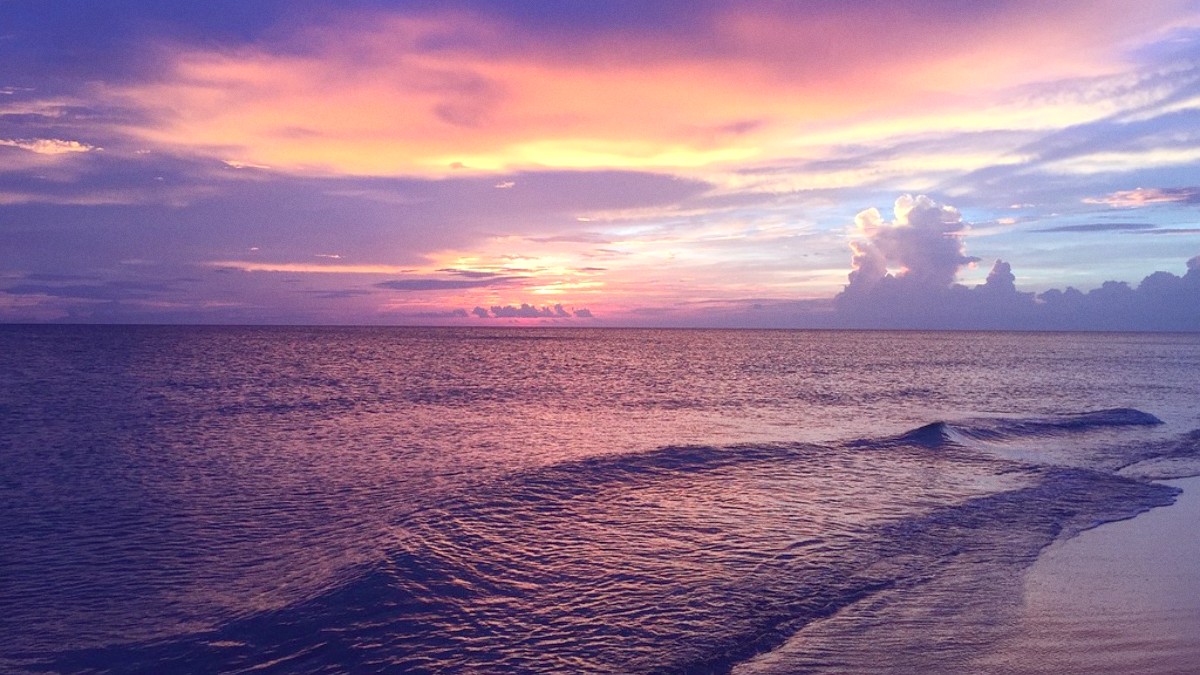
British Virgin Islands
Dry Season (December to May): This period features average daily temperatures from 75°F to 85°F (24°C to 29°C). Expect lower humidity levels and minimal rainfall. Nights feel slightly cooler, for comfortable sleeping conditions. Gentle trade winds prevail during these months, a pleasant breeze that reduces the perception of heat. Skies are generally clear and sunny, making it for outdoor activities and beach days.
Wet Season (June to November): Temperatures rise slightly, typically ranging from 80°F to 90°F (27°C to 32°C). Humidity increases noticeably. While rain showers become more frequent, they often arrive as brief, intense downpours rather than prolonged periods of rain. The wettest months generally occur in September and October. Despite the rain, sunny periods remain common, allowing for plenty of outdoor enjoyment.
High Season (Mid-December to April): Perfect weather, abundant sunshine, low humidity, calm seas. Peak prices for accommodation, flights, activities. Attractions like The Baths see crowding. Book well in advance (6-12 months) for holidays.
Shoulder Season (May-June, November): Good balance. Weather pleasant with more sunshine than rain, though humidity increases toward June. Fewer crowds, relaxed experiences. Lower prices for flights and accommodation. November holds a slight risk of late hurricane activity.
Peak hurricane season
Lowest prices for flights & accommodation, fewest crowds, lush green landscape.
Higher humidity, frequent rainfall. Businesses may close. Travel disruptions possible.
Highest risk Aug-Oct
Resorts have plans. Monitor forecasts. Consider travel insurance.
Travel disruptions like flight delays or ferry cancellations.
Balance of benefits
Good weather, fewer crowds, better prices for accommodation and flights.
Increasing humidity towards summer. Some smaller businesses might close later in this period.
Citizens of the United States, Canada, the United Kingdom, most European Union countries, Australia, New Zealand, and many Caribbean nations do not require a visa for stays up to 30 days. This makes short vacations easy to plan.
For other nationalities, or for stays longer than 30 days, a visa may be necessary. The application process typically involves applying through the BVI Immigration Department or a British embassy or consulate in your home country. Start this process well in advance.
Valid for at least six months beyond your intended stay.
Proof of your departure from the BVI.
Confirmation of your hotel, villa, or yacht booking.
Demonstration of sufficient funds for your stay.
No specific tourist entry fees upon arrival.
Virgin Gorda is a relatively upscale destination in the Caribbean, but you can tailor your trip to fit various budgets.
The official currency is the United States Dollar (USD). Credit cards (Visa, MasterCard, American Express) widely accepted at hotels, resorts, larger restaurants, and shops. ATMs are available in Spanish Town and at some resorts for USD cash withdrawals.
Tipping shows appreciation for good service in the BVI.
These estimates present a general idea of costs on Virgin Gorda.
Virgin Gorda is a relatively safe destination.
No specific vaccinations for most nationalities beyond routine ones.
Routine vaccinations, Hepatitis A and B, Typhoid (for specific dining/stays).
Use Reef-safe sunscreen (SPF 30+), wear a Wide-brimmed hat and Sunglasses, seek shade, hydrate.
Prevention is for a healthy trip.
Dengue fever and Zika virus exist. Use effective Insect repellent, wear long sleeves/pants. Watch for sea urchins (wear Water shoes), jellyfish, and fire coral. Never step on coral.
Tap water is generally safe. Practice good hand hygiene with soap and water or carry Hand sanitizer. Eat at reputable places.
Hydration is critical due to the heat and humidity.
Small clinic in Spanish Town for minor issues. Serious emergencies require transfer to Peebles Hospital in Tortola.
Dial 999 or 911 for Police, Fire, and Ambulance services in BVI.
Highly recommended, especially for medical emergencies and potential medical evacuation. Consider SafetyWing or World Nomads.
Virgin Gorda boasts a very low crime rate, among the safest Caribbean destinations. Petty theft can occur. Hurricanes are the main natural disaster risk.
Keep a list of these numbers readily accessible. Store them in your phone and also keep a physical copy in your Travel document organizer.
Police, Fire, Ambulance: 999 or 911
Peebles Hospital: +1 284-852-7510
US Consulate (Barbados): +1 246-227-4000; UK High Commission (Barbados): +1 246-430-7800